New Year, New Responsibilities - Angling and the Environment
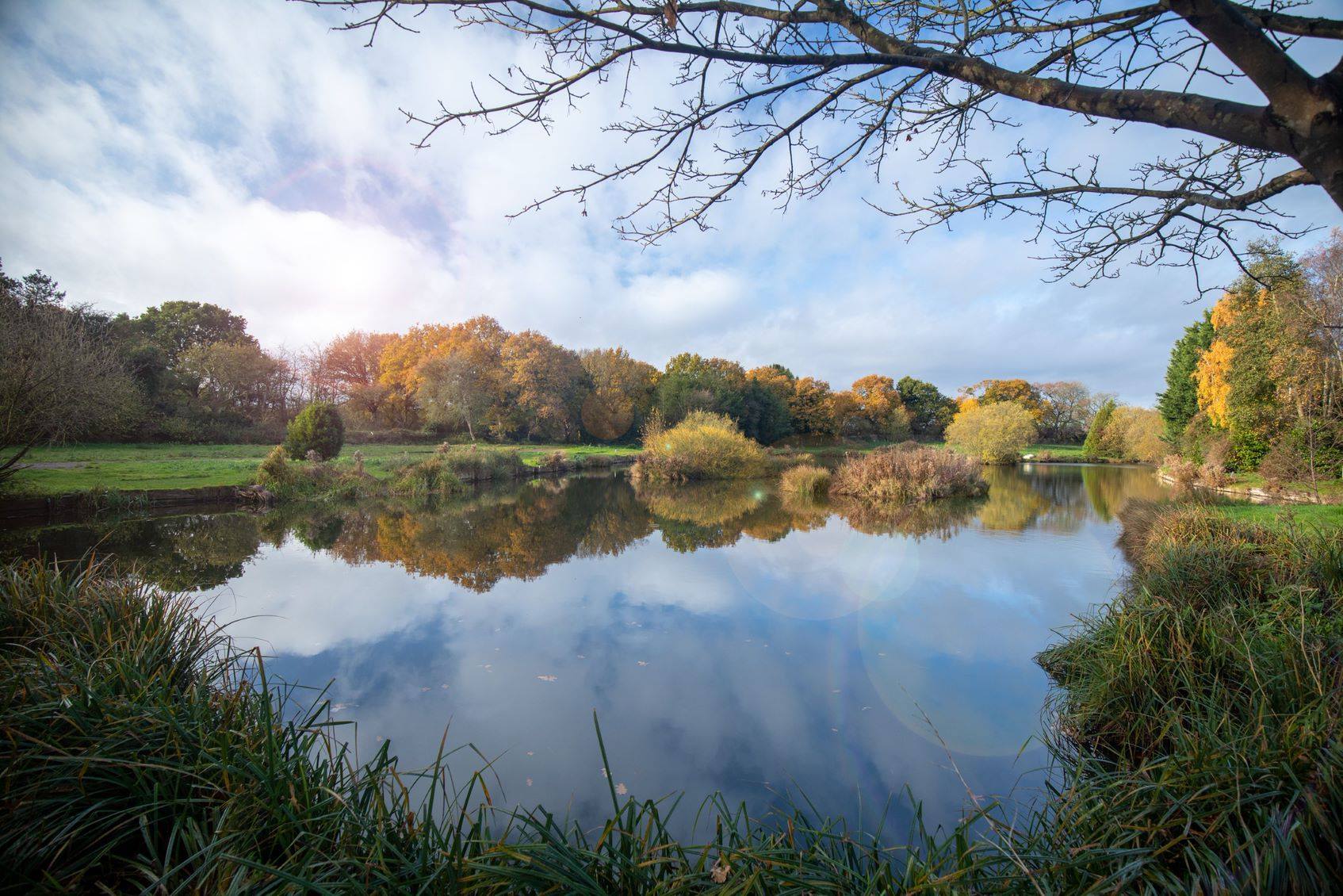
You may have already set yourself a New Years Resolution whether its to eat fewer chocolate biscuits whilst at the bankside or to venture into a new discipline like sea or fly fishing in 2021, but you can consider a change to your angling habits too. If you have not yet set yourself a goal for this year or are looking to give something back to the environment then why not start a new responsibility that benefits yourself, other anglers and the fish.
The Plastic Waste Problem
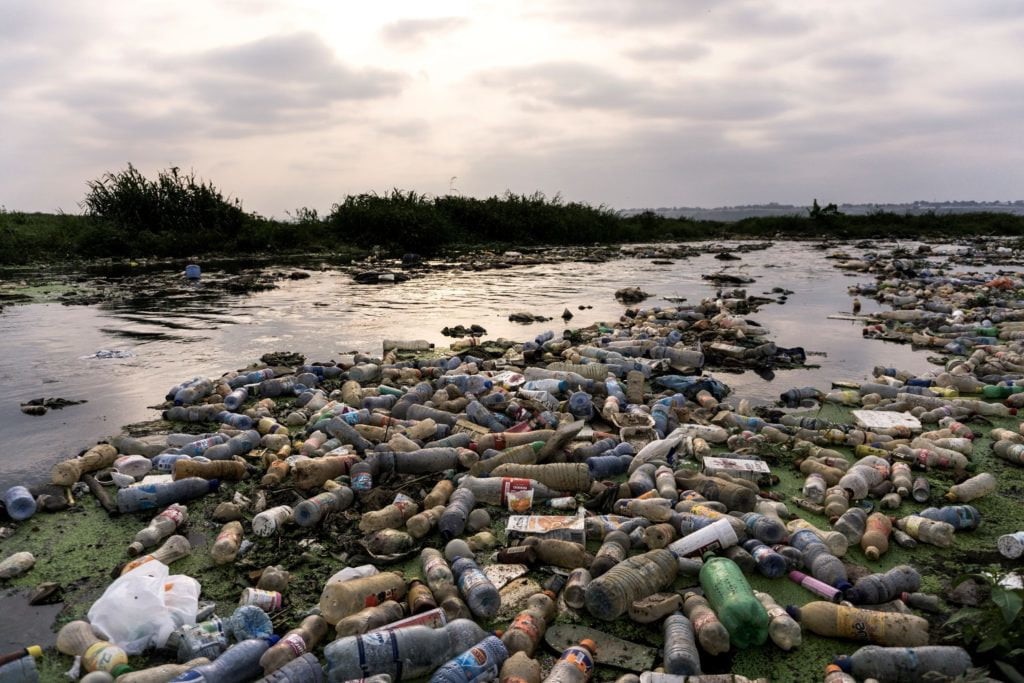
Before we dive into what you can do, let us start by sharing exactly what the problem some of our venues are dealing with, not just across the UK but in neighbouring angling countries too!
As an angling retailer staffed by anglers, and on the front line of direct engagement with people as passionate about the sport as we are, we've long known that our rivers are changing for the worse. The use of improper discarding on plastics is certainly well documented with research by Friends of the Earth assessing that the British waterways contain, in some cases, over 1000 microscopic pieces of plastic per litre.
Some of the worst affected areas are in urban surroundings such as the River Tame, Tameside, Greater Manchester, however, even the most remote areas such as Loch Lomond, Scotland are recording alarming levels of pollution. It appears no stretch of freshwater is free from contamination.
How Does Plastic Waste Affect the Fish?
Not only polluted waterways are raising concerns but it also causes health concerns of the fish. Barbel stocks in the Wensum are now virtually no existent, specimen fish are coming up smaller than anglers would expect, or simply not appearing to be present in their favoured waters at all, even larger predators such as pike aren't reaching the headline-grabbing sizes they have done; often, one or two large pikes are simply being caught over and over again, which is not in the spirit of the sport, nor is it good for the health of this fish themselves.
As anglers, the waters we fish matter to us. You don't need a degree in environmental science to know that a polluted lake, river, or ocean means, at first, smaller fish, and, soon, no fish at all. Anyone who spends any time by the water knows that, once the fish go, everything else crashes soon afterwards.
If plastic pollution is contributing to declining health and populations in our coarse fish, in the same way as has been shown to be the case when it comes to ocean plastics, then it benefits anglers, among many other groups, to be involved in efforts to reduce the amount of plastic and rubbish we use and dispose of.
How Does Angling Direct Help the Environment?
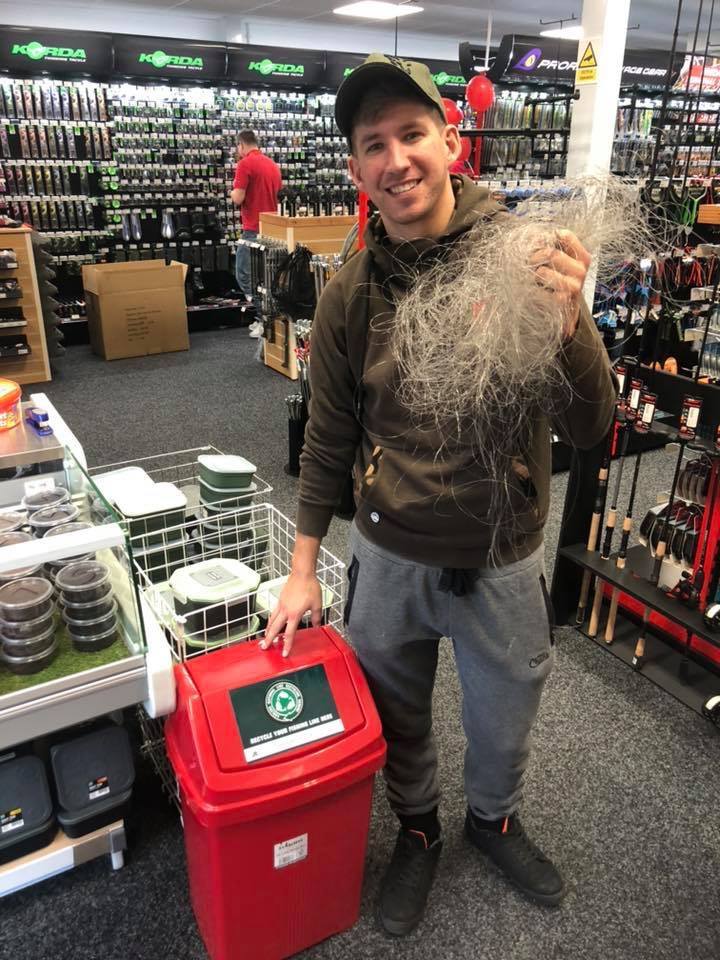
We, here at Angling Direct have tried to do our bit and still are in cutting down our footprint and getting fellow anglers to be more mindful. Alongside the introduction of sustainable bagging, we are also working alongside the Anglers National Line Recycling Scheme (ANLRS) the scheme, backed by Alan Blair and the Environment Agency, aims to encourage anglers to recycle their mainline once used.
With all fishing line that has been collected by Angling Direct so far, we have a running total for 1,274,000 metres of recycled fishing line that has been sent off to ANLRS. See more about the success here.
We would love to thanks all those that continue to recycle their old fishing line in our bins and use our paper bags when visiting the stores. We hope this continues to be as successful in 2021. For those unaware, check the post here about our Line Recycling Scheme and until our stores are safe to open again you can collect up all that old line for our bins!
Ways to Reduce Your Plastic Footprint
Not only do anglers benefit from spending time at the bankside. Angling provides an opportunity for people to become advocates for the environment while being out there and enjoying themselves. There are numerous ways in which recreational angler can help. At Angling Direct, we believe as anglers, that we should have a heightened sense of responsibility for the UK’s waterways. After all, the rivers, lakes, canals and seas that surround the UK are the arena in which our beloved sport is contested.
1) Stop using Plastic Bags when Shopping for Tackle
Angling Direct stores have been plastic carrier bag free since October 2018, being replaced by biodegradable paper bags and hessian bags for life, at a cost of 10p – the paper bags are a small price to pay for the welfare of the fish we love to catch.
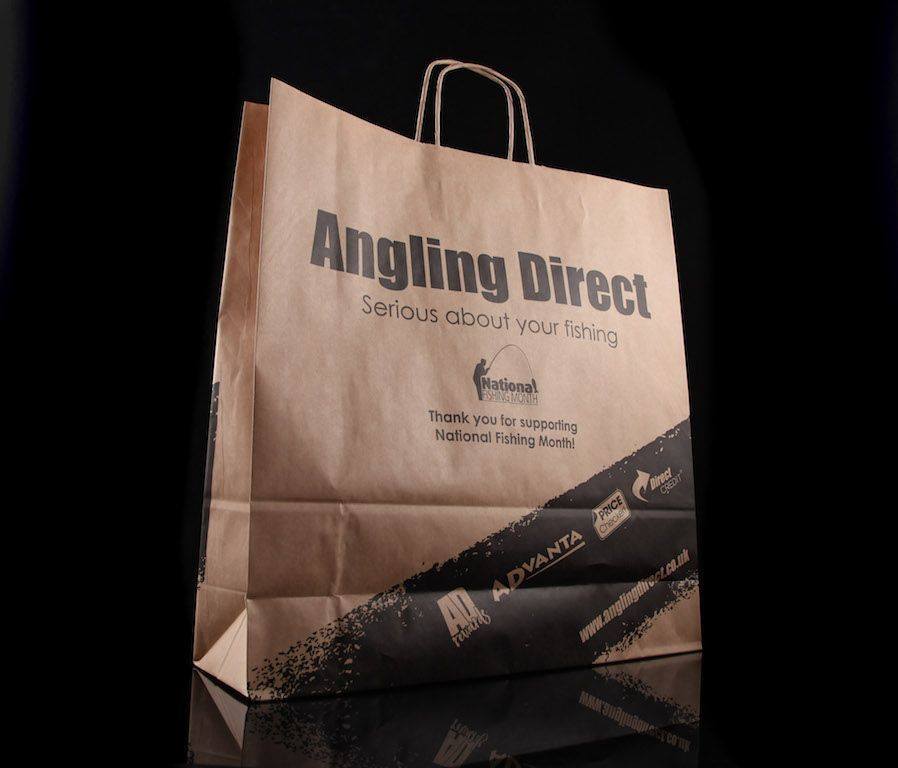
2) Recycle your Fishing Line
By recycling your fishing line you are reducing pollution, leaving one less hazard for wildlife, and improving the image and reputation of angling. Almost all anglers care about the wider environment, as healthy wildlife and clean surroundings lead to good fishing. As such, we, here at Angling Direct know that recycling matters to you and we also know that you’re all busy with work, family, and many other commitments.
Recycling fishing line is something the whole of the angling community can agree on, with over 85% of anglers surveyed saying they would be keen to recycle their used fishing line if facilities were available. The good news is that facilities are available at Angling Direct stores, and recycling your fishing line is easy so, doing the right thing has become effortless.
In 2018, ANLRS recycled 2.5 million metres of line, most of which will be reused in the construction of traffic cones, sunglasses, skateboards, wetsuits and swim wear. A valiant effort, but ANLRS need the cooperation of manufacturers, retailers and most importantly you, the angler. You can recycle your fishing line which is made of plastic, at any of our Angling Direct stores, by popping your old line in one of our red recycling bins. You can read more on line recycling tips here.
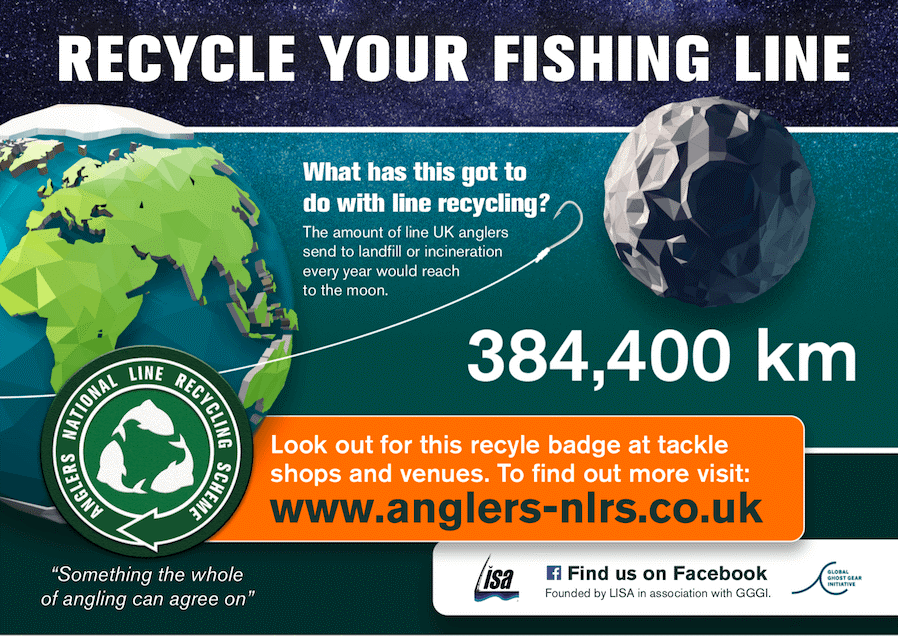
3) Consider Plastic-free or Conscious Brands
After discussions with Korda, Angling Direct teamed up with the great fishing supplier to try to reduce the plastic waste on their items that comes through the AD warehouse. By transporting products in tote boxes, Korda is now saving 672m of tape each month, that’s as tall as 16,800 Korda Tackle Boxes! Minimising the transit packaging waste is just the start, as we hope more will join to reduce the use of plastic in transits and packaging. Read more on the Korda Initiative here.
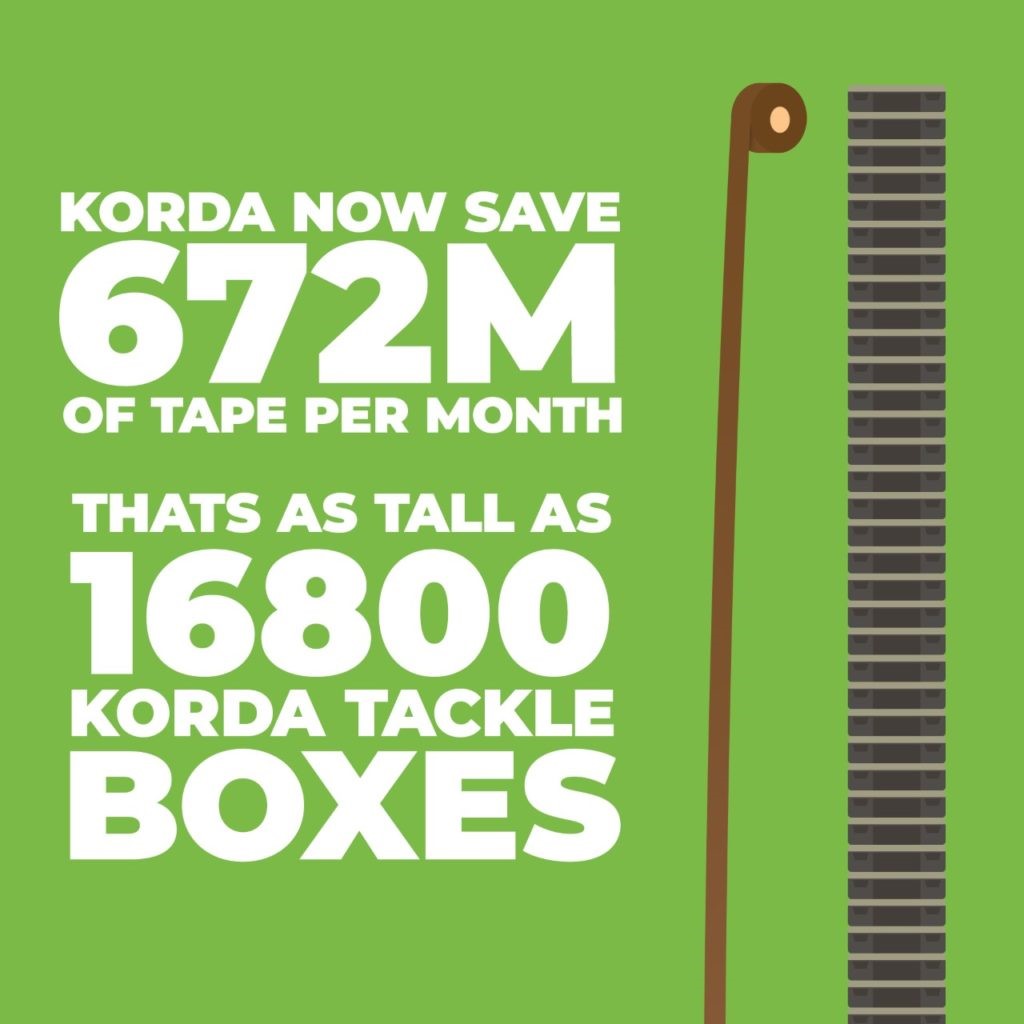
Eco-Friendly Fishing in 2021
Cutting down on your plastic waste, recycling and using alternative packaging is just the start of what you could achieve in 2021. If you want to really jump into your new responsibility of an eco-friendly angler, check out the following tips.
Cleaning up Litter After a Day’s Fishing
Possibly the easiest way to be eco-friendly when fishing is to clean up after yourselves. Many recreational anglers are cleaning up litter, not only after themselves but joining anglers clubs and angling-related organisations in scheduled events of litter removal from waterways and surrounding land.
Anglers are growing more conscious of the adverse publicity linked to fishing, cleaning up after themselves with fishing line, unused bait and their own packed lunch. If you change your mentality to leaving the fishing area cleaner then what you found it, it will help the marine ecosystem improve.
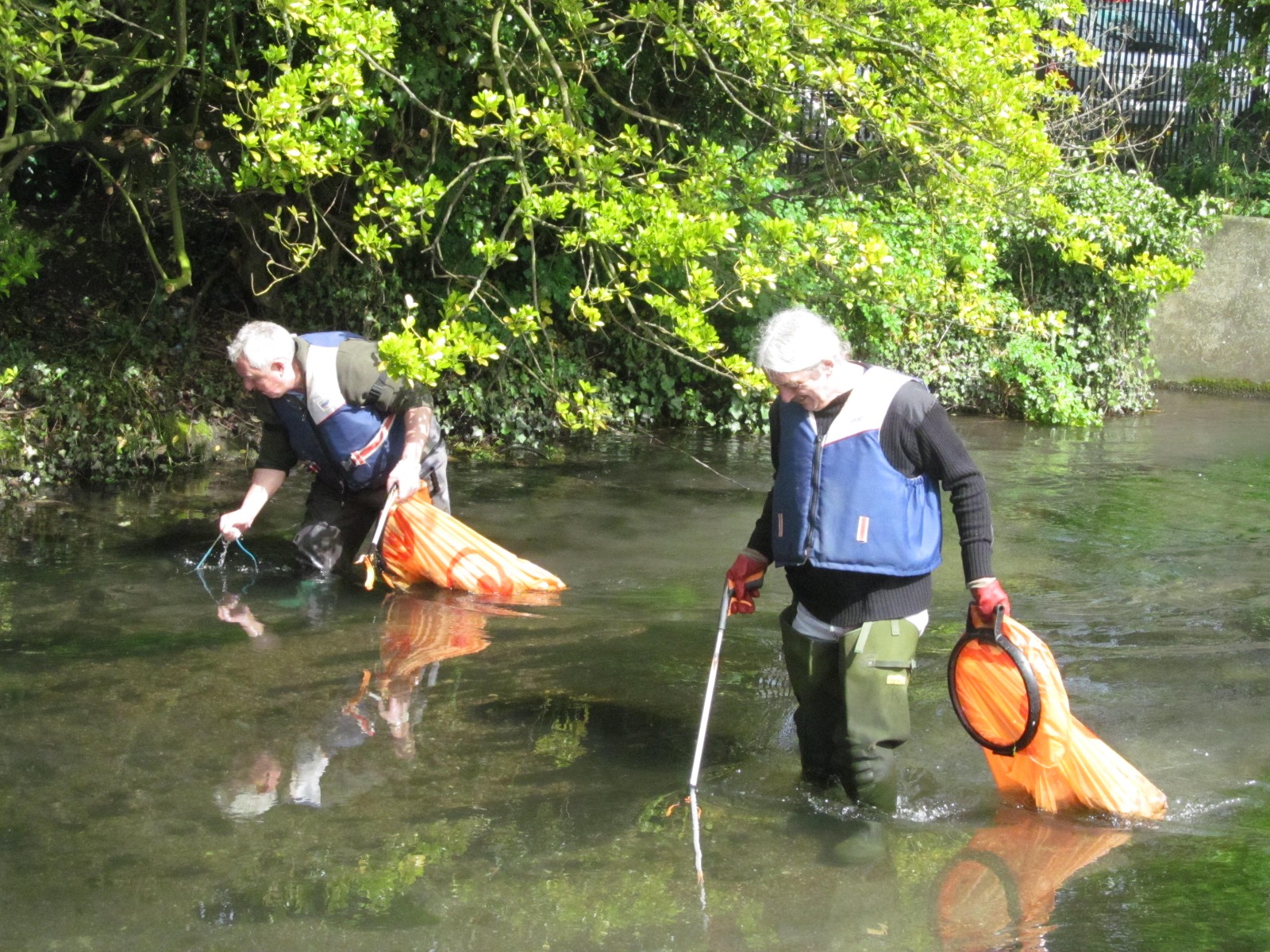
Participate in Aquatic Surveys
These surveys and monitoring take part in various forms of water management for the benefit of both themselves and the wider environment. By working with the Riverfly Partnership Angler Monitoring Initiative, not only do anglers get a sense of personal achievement from carrying out this sort of voluntary work but, as this work is usually carried out in the local area, this benefits the local community as well.
Follow Local Byelaws and Fishery Rules
The widespread endorsement and application of catch and release principles by anglers in wild fisheries help to protect livestock. You can further protect fish by following your local byelaws from on .GOV or research the rules of the fishery you plan to use when angling. Often you will find fisheries outline the bait, rig presentation, hooks and more that is banned from the water to protect the welfare and give all anglers a great session of fishing.
Report Pollution of Aquatic Wildlife
From 2015 there are some Water Protection Zones in the UK but there are still many canals and rivers affected by farming and other agriculture disposals causing major damage to fish populations. All anglers can do is notify local Stewards of the water you are fishing from and support Angling Trust, Defra and Fish Legal in their pushing for government discussions of food product and waste that directly affects surrounding wildlife.
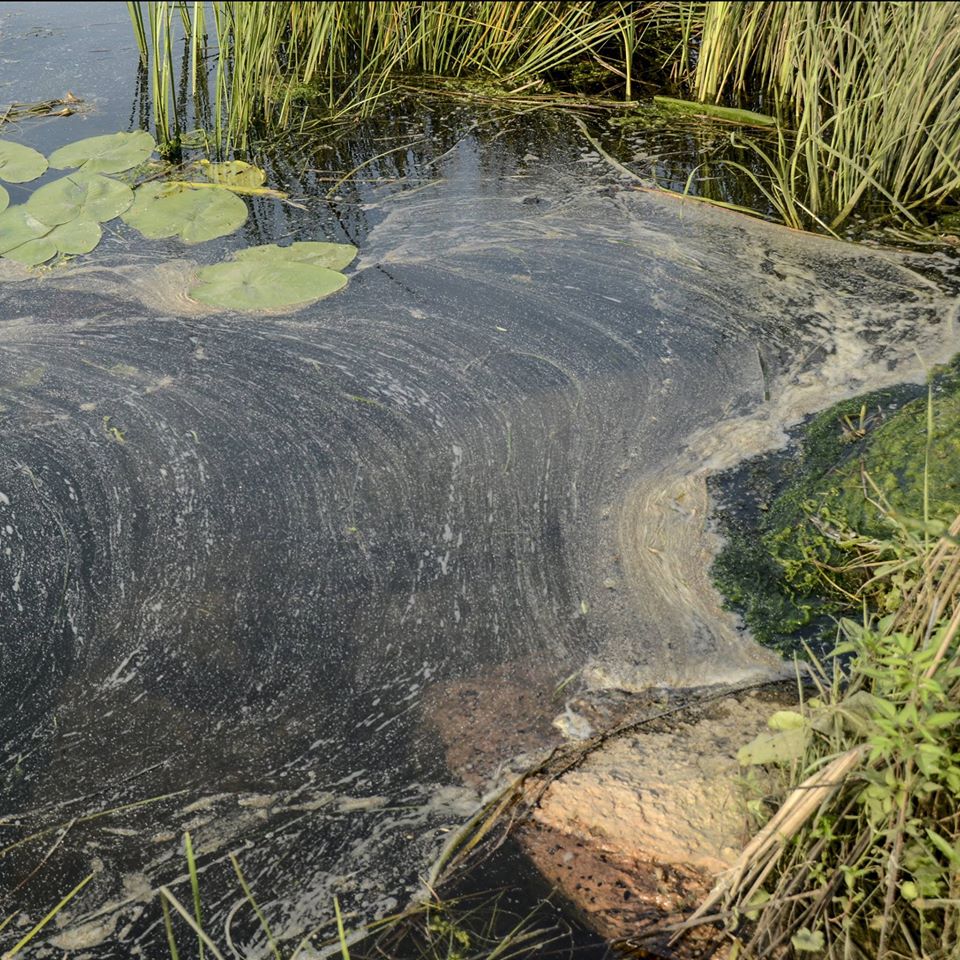
Reporting Poaching of Fish
As well as reporting any pollution of the nature surrounding the water’s edge, anglers can also work together with organisations such as Angling Trust to face the problem of poaching and over-abstraction or any other issue on a river, still water or canal, etc. Reports of poaching and pollution are important as it helps local and in some cases national issues that impact the environment to be resolved.
Choosing Environment-Friendly Fishing Gear
Making changes to what angling products you use can help reduce the negative impact on the environment. One way of achieving this is with switching to reusable, fish-friendly bait such as artificial sweetcorn or lures. Anglers can also opt for biodegradable monofilament fishing line that breaks down faster yet still has the same performance characteristics as the regular line. Using lead products can be dangerous to fish so consider changing the friendlier materials such as steel, tungsten or tin.
Eco-friendly angling also concerns your choice of hooks. By choosing circle hooks instead of J-hooks you can minimize internal damage, especially when practising catch and release. It is also recommended to look for rigs made of materials like glass beads, to pick knotless nets and when you’re picking out other gear like waders or tackle boxes, look for those made from recycled materials.
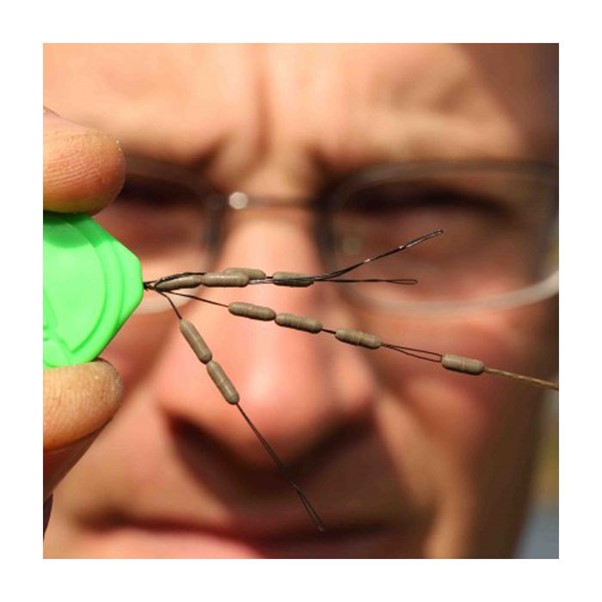
Avoid Contamination and Aquatic Hitchhikers
Preventing the spread of aquatic invasive species starts with a cooperative effort by all persons and agencies involved with recreational activities such as anglers. The general clean, drain, dry, dispose procedure can be used when washing mats, nets, tackle and other fishing equipment.
Supporting the Cause
The easiest way to support the environment is to purchase a rod licence. This not only allows you to fish in the UK waters (depending on the type of licence you buy) but also give money to the Environment Agency to invest back into the waters we use.
Additionally, you can support fisheries and related charities and organisations by supplying funds, partaking or even organising charity events so that the resources needed to clean rivers, re-stock waters and tackle poaching and pollution issues can be easier to obtain!
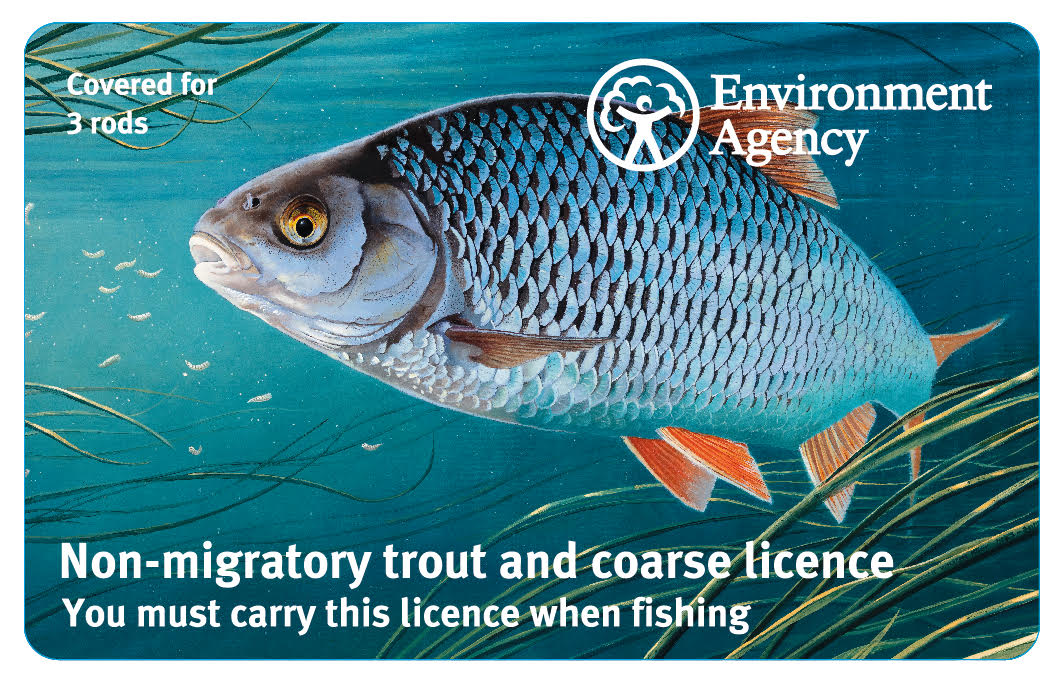
If you want more tips on eco-friendly fishing habits, check out the Environment Day piece on our AD blog.
Many anglers already do so much to help the environment and we want to thank those already doing the listed tips above, and those that helped Angling Direct in 2021 collect so much old fishing line to recycle! These small differences to our angling habits in 2021 can really have a positive impact as a collective so we hope the next time you hit the bank in 2021 you give this think about the ways you can help fish and its aquatic surroundings.
If you have more tips to help anglers be more eco-friendly or want to share your own achievements with helping the environment, contact us through our social media on Facebook, Twitter and Instagram.